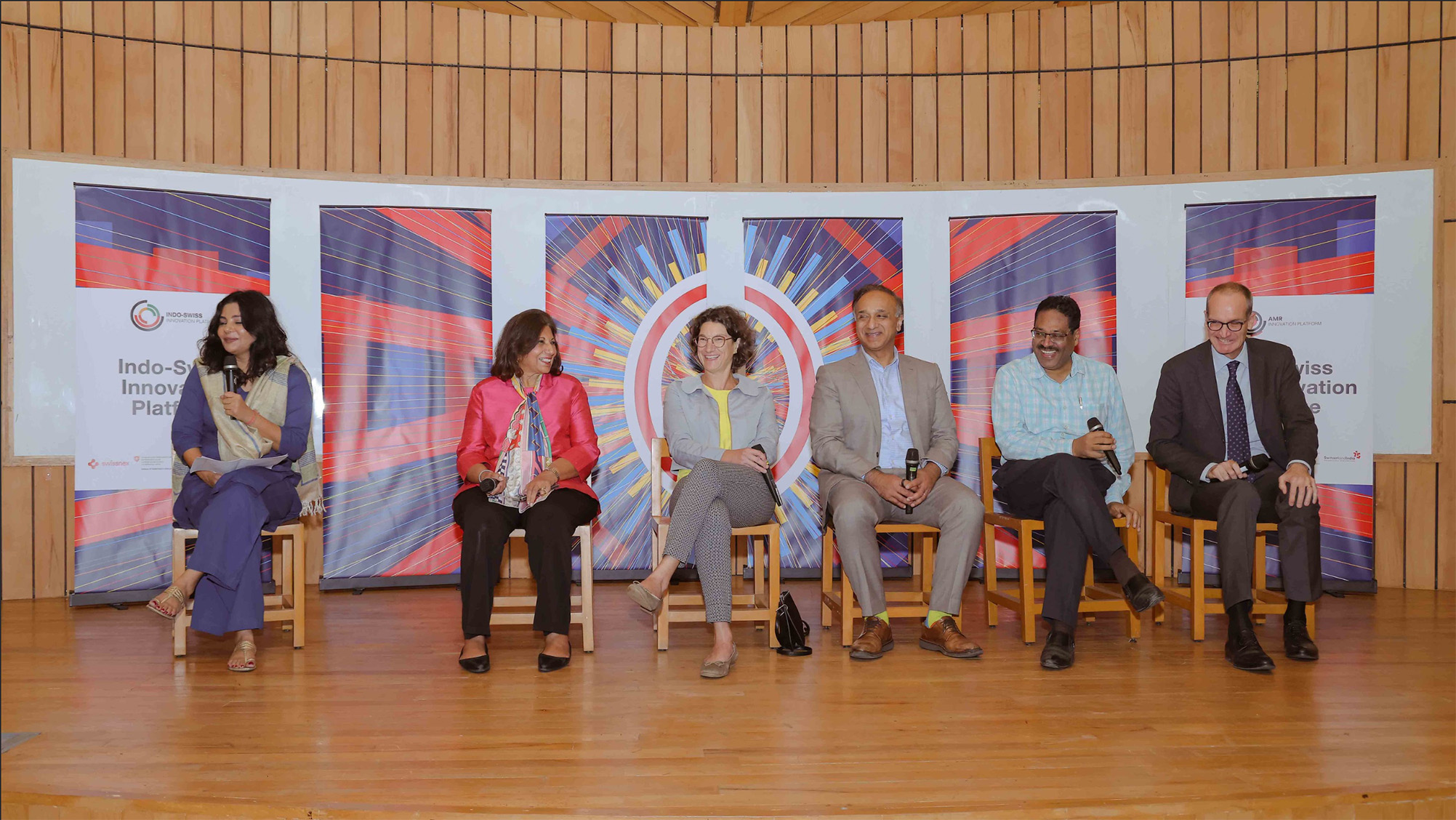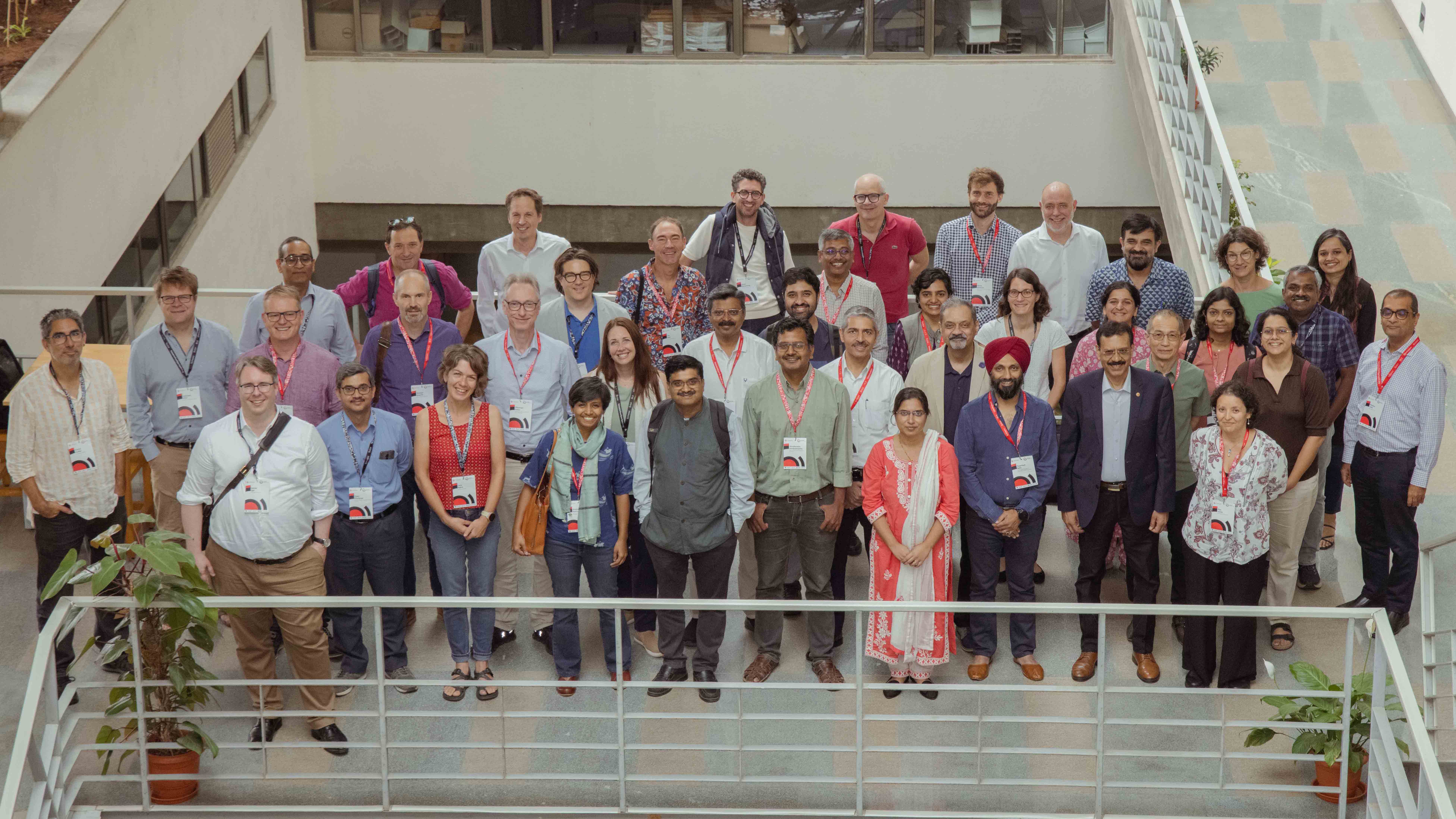Time to act: UZH co-organizes Indo-Swiss AMR Innovation Dialogue
A team of Swiss and Indian researchers active in the research of antimicrobial resistance has initiated the Indo-Swiss AMR Innovation Dialogue. Supported by Swissnex in India, the vision is to identify areas of collaboration and find common ground for innovative projects.

Antimicrobial resistance (AMR) is one of the most pressing societal problems for humankind. Without vigorous counteractions, there is a real risk to lose one of the most precious tools in medicine, namely the miracle weapons called antibiotics. Swiss and Indian researchers therefore aim to build a network of experts who align their ideas in view of the challenging years that are ahead of us because of the growing AMR crisis.
With this goal in mind, the Indo-Swiss AMR Innovation Dialogue took place in Bengaluru, India, from 29 to 31 October. The conference brought together experts from India and Switzerland in the areas of research, diagnostics, startup, tech and innovation, investment, pharma, policymaking and governance.
Need to improve surveillance, reduce the spread of infections and adapt economic frameworks
One of the challenges discussed was the surveillance of AMR data: How can we improve AMR surveillance and the storage, analysis and sharing of data? Another session focused on the specific challenges in hospitals to control the spread of infections. An important finding was that diagnostic testing as well as surveillance is currently comparatively costly and labor-intense in India. Therefore, only coarse-grained information exists regarding the AMR situation in India.
In addition, economic aspects were examined: The AMR space has been underfunded for several decades. “Unfortunately, the economic framework conditions do not change at the required speed to ensure the development of novel antibiotics at the scale we will need them in the years to come”, underlines Markus Seeger, co-organizer of the event and professor at the Institute of Medical Microbiology at UZH. The experts therefore discussed what would be needed to overcome the antibiotics development void.

Indo-Swiss Innovation Platform
The AMR Innovation Dialogue is one of the focus areas of the Indo-Swiss Innovation Platform which was launched by Swissnex in India at the same event. The platform focuses on health, sustainability and digital transformation by bringing together multidisciplinary communities from the two countries.
UZH was represented by medical microbiologists Markus Seeger and Adrian Egli, infectiologist Annelies Zinkernagel, epidemiologist Jan Fehr and Shawna Mc Callin from Balgrist University Hospital.
Building on collaborations in the area of One Health
While offering a platform to establish new connections, the conference also was an opportunity to build on existing relations, such as the collaboration between Jan Fehr, UZH, and Utpal Tatu, from the Department of Biochemistry at the Indian Institute of Science, who jointly work on developing solutions in the area of One Health. One Health offers a holistic view on human and animal health in the context of entire ecosystems encompassing a broad range of disciplines.

Joining forces to combat antimicrobial resistance
Participants confirmed that the conference was a full success, laying the foundation for even deeper collaborations. “The launch of the Indo-Swiss Innovation Platform by Swissnex was a game-changer, marking the beginning of a promising alliance in our battle against Antimicrobial Resistance”, highlighted UZH researcher Adrian Egli. "This collaboration is a testament to Swissnex’s commitment to fostering innovation and building a resilient, future-ready healthcare landscape.”
Priska Feichter


